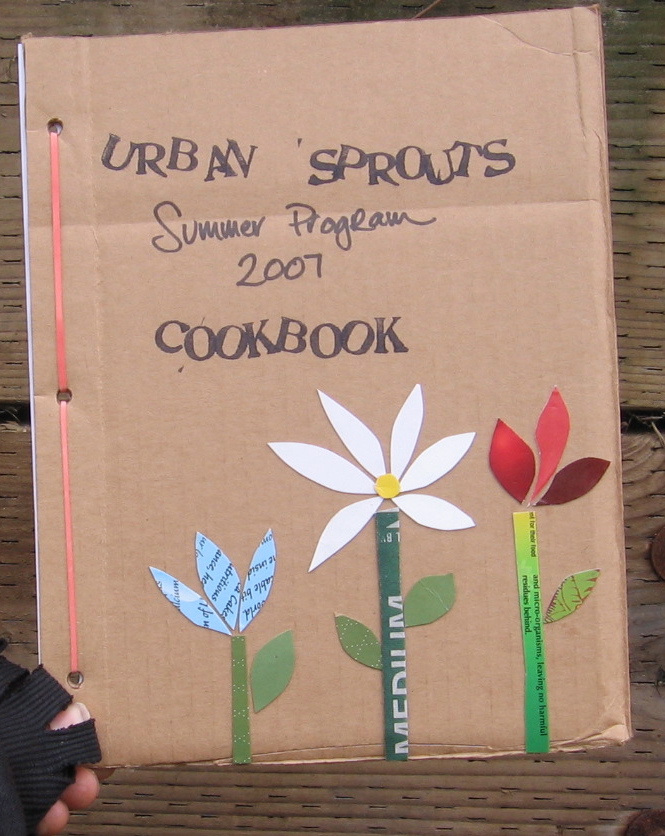 I was extremely honored to be asked to give the keynote speech at last Saturday's School Garden conference held by the UC Botanical Garden at Berkeley. The conference theme was successes and best practices, so I shared the Program Model and the story of how Michelle's research study on school gardens led to this framework that guides all Urban Sprouts' work. If you haven't yet visited this amazing botanical garden, go now!
I was extremely honored to be asked to give the keynote speech at last Saturday's School Garden conference held by the UC Botanical Garden at Berkeley. The conference theme was successes and best practices, so I shared the Program Model and the story of how Michelle's research study on school gardens led to this framework that guides all Urban Sprouts' work. If you haven't yet visited this amazing botanical garden, go now! Presentations at the conference included the Botanical Garden's Botany on your Plate curriculum, which you can now buy at their bookstore. We explored plant parts, and found that you can use radishes as giant pink crayons! We made root mash (like mashed potatoes) from six different root vegetables, and the most popular one was rutabagas!! Apparently rutabagas are becoming endangered because not enough people eat them. I found them delicious.
Presentations at the conference included the Botanical Garden's Botany on your Plate curriculum, which you can now buy at their bookstore. We explored plant parts, and found that you can use radishes as giant pink crayons! We made root mash (like mashed potatoes) from six different root vegetables, and the most popular one was rutabagas!! Apparently rutabagas are becoming endangered because not enough people eat them. I found them delicious. In my talk, I also brought up the history of school gardens in the US. Too few of us garden educators know our own history - that during World War I and II school gardens were identified as a major solution to the social issue of the day, national security.
In my talk, I also brought up the history of school gardens in the US. Too few of us garden educators know our own history - that during World War I and II school gardens were identified as a major solution to the social issue of the day, national security.Wartime threatened our food supply, and even Europe was dependent on US-grown food. The US School Garden Army enlisted "soldiers of the soil" to grow food at schools, to increase fruit and vegetable consumption, and to improve the health of the populace. This call that "food will win the war," was incredibly successful. Several million school children grew food in their school gardens, growing 40% of all fruits and vegetables eaten in the US. This was the time in our history when Americans ate the most fruits and vegetables, ever! I learned all this from Rose Hayden-Smith's fascinating work on the US School Garden Army. On her website you can see some of the old propaganda posters, including the one above, calling on children to serve their country in the school garden!
Think we can create such a mass mobilization today? School gardens can have a major impact on many current issues, beyond getting kids to eat more veggies and do better on standardized tests. Can you think big, and think of ways school gardens can make real change in our communities?









No comments:
Post a Comment